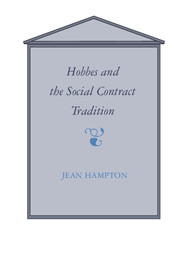Book contents
- Frontmatter
- Contents
- Acknowledgments
- A note on texts and references
- Introduction
- 1 “Of Man”: the foundation of Hobbes's political argument
- 2 What is the cause of conflict in the state of nature?
- 3 The shortsightedness account of conflict and the laws of nature
- 4 The argument for absolute sovereignty
- 5 Authorizing the sovereign
- 6 Hobbes's social contract
- 7 The failure of Hobbes's social contract argument
- 8 Can Hobbes's argument be salvaged?
- 9 How the traditional social contract argument works
- Bibliography
- Index
2 - What is the cause of conflict in the state of nature?
Published online by Cambridge University Press: 05 June 2012
- Frontmatter
- Contents
- Acknowledgments
- A note on texts and references
- Introduction
- 1 “Of Man”: the foundation of Hobbes's political argument
- 2 What is the cause of conflict in the state of nature?
- 3 The shortsightedness account of conflict and the laws of nature
- 4 The argument for absolute sovereignty
- 5 Authorizing the sovereign
- 6 Hobbes's social contract
- 7 The failure of Hobbes's social contract argument
- 8 Can Hobbes's argument be salvaged?
- 9 How the traditional social contract argument works
- Bibliography
- Index
Summary
Who of you is ignorant that the nature of things has been such, that at one time men, before there was any natural or civil law fully laid down, wandered in a straggling and disorderly manner over the country, and had just that property which they could either seize or keep by their personal strength and vigour, by means of wounds and bloodshed. And there is no point in which there is so much difference between this manner of life, polished by civilization, and that savage one, as the fact of law being the ruling principle of the one, and violence of the other.
Cicero, For Publius SestiusHaving presented the premisses of Hobbes's argument for absolute sovereignty, we now move to discuss the theorems that Hobbes says are derived from those premisses and that he uses to justify the sovereign's institution. Clearly, the first of these theorems is that the state of nature is a state of war. Hobbes's well-known characterization of the life of man in the state of nature as “solitary, poore, nasty, brutish and short” ends a passage containing a particularly graphic description of the violence and loss suffered by men in that state (Lev, 13, 9, 62). However, although Hobbes is good at describing the warfare in the state of nature, he is not nearly so good at explaining it.
- Type
- Chapter
- Information
- Hobbes and the Social Contract Tradition , pp. 58 - 79Publisher: Cambridge University PressPrint publication year: 1987



